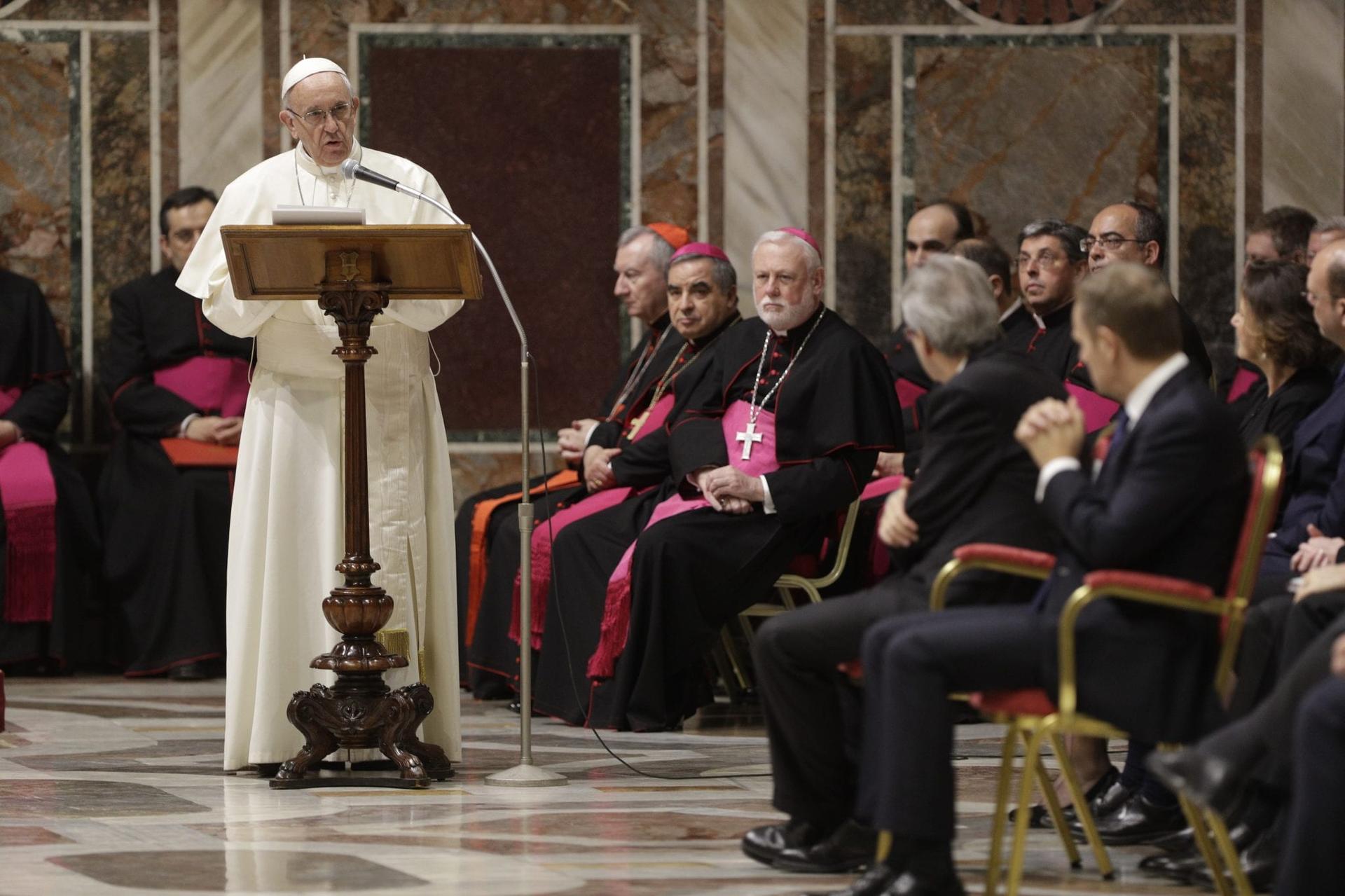ROME — Pope Francis on Friday challenged leaders of the European Union to imitate the “spirit of service” of the founders of the organization, as the bloc faces its worst crisis in history.
The pontiff was speaking to over twenty heads of state and government in Rome to mark the 60th anniversary of the signing of the Treaty of Rome, which established the European Community, what is now the European Union.
The treaty was signed on March 25, 1957, in an environment of hope and celebration. It was just over a decade after the end of World War II, and the institutions brought together former enemies, providing mechanisms that kept the majority of the continent at peace for one of the longest sustained periods in its history.
But what should be a party, has instead become a time of quiet introspection about the many challenges threatening the EU’s place in the world.
The bloc has been experiencing a decade-long economic crisis tied to the inflexibility of the Euro, the common currency used by many of its members; wars, droughts, and other humanitarian disasters are forcing a stream of migrants and refugees into member-states, and the search for a common policy is proving elusive; and the rise of Eurosceptic populist parties is threatening the very future of the European project.
Nowhere is this more obvious than in the United Kingdom, which is set to formally begin the process of leaving the EU in the coming days. (Britain did not send a representative to the event in Rome, but Francis did express his solidarity with the British people, after the terrorist attack which took place on Wednesday.)
The pontiff urged the remaining EU leaders to tackle these problems with the boldness of the people who signed the Treaty of Rome 60 years ago.
The pope said leaders need to realize the founders of the EU did not see Europe as “a manual of protocols and procedures to follow,” but “a way of understanding man based on his transcendent and inalienable dignity.”
He said Europe has forgotten the “the tragedy of separated families, poverty and destitution” stemming from the immediate post-World War II era, and the Cold War which followed.
“These days we debate how to keep out the ‘dangers’ of our time: beginning with the long file of women, men and children fleeing war and poverty, seeking only a future for themselves and their loved ones,” Francis said.
The pope said Europe can find hope in solidarity, calling it the most effective antidote to modern forms of populism.
“Politics needs this kind of leadership, which avoids appealing to emotions to gain consent, but instead, in a spirit of solidarity and subsidiarity, devises policies that can make the Union as a whole develop harmoniously,” the pontiff said.
He said that Europe has “a patrimony of ideals and spiritual values unique in the world,” calling it the “best antidote against the vacuum of values of our time, which provides a fertile terrain for every form of extremism.”
The pope called on the European leaders to invest in a form of development which “has to do with the whole human being,” providing jobs, decent living conditions, and access to education and health care.
Francis also said there can be no peace where people are being cast aside, or forced to live in dire poverty.
“There is no peace without employment and the prospect of earning a dignified wage,” the pope said, “there is no peace in the peripheries of our cities, with their rampant drug abuse and violence.”
He called on Europe to be “open to the future,” offering young people serious prospects for education and jobs, and to invest in the family, which the pontiff called “the first and fundamental cell of society.”
The pope said the EU must respect the “consciences and the ideals” of its citizens, and called on it to defend life in all of its sacredness.
Francis said the leaders must “blaze the path of a new European humanism,” and that this “will mean being unafraid to take practical decisions capable of meeting people’s real problems and of standing the test of time.”














